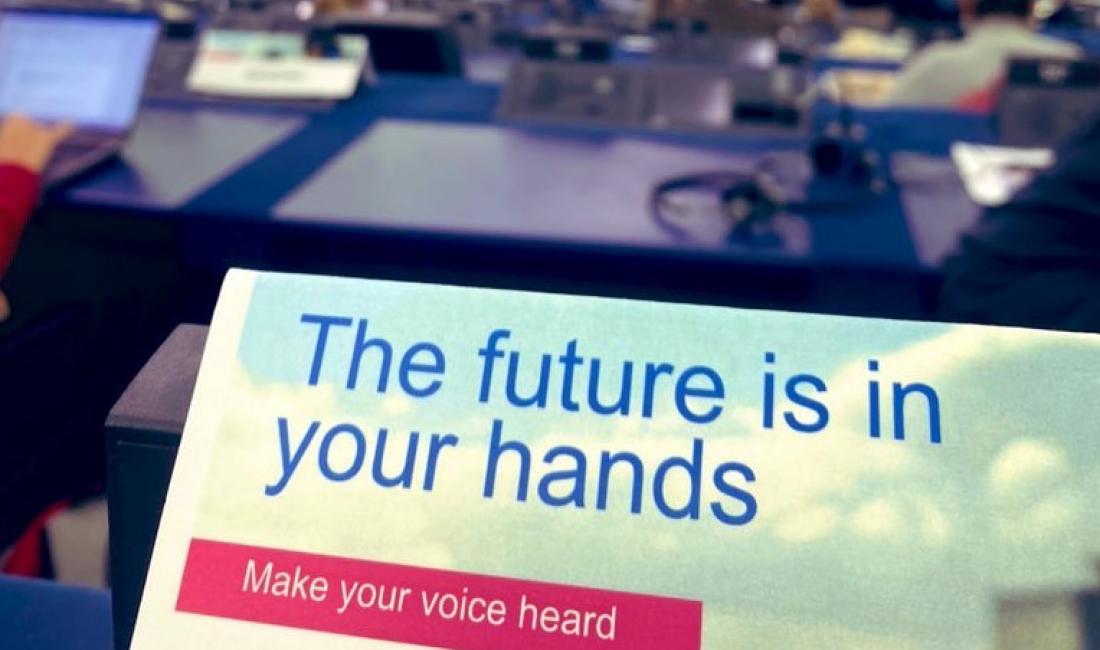On the 24th of February 2022, when Russia invaded Ukraine, there was a need for strong leadership and a unified response to counter Russia’s aggression. The EU, together with its allies from all around the world, was able to rise up and meet this demand. Since then, a newfound hope for the European Union to more permanently hold such a role has emerged.
A functioning, efficient, democratic EU is key for Europe to be able to rise up and meet the challenges of the 21st century. But time and time again, mechanisms such as the requirement of unanimity in the European Council threaten just this. In 2020, for example, the EU planned sanctions against those responsible for the manipulation of the presidential elections in Belarus. And yet, these sanctions were vetoed by Cyprus. They demanded the implementation of further penalties against Turkey in exchange for its vote for the sanctions. Even during our current crisis, the EU lags behind its capabilities due to nations, such as Victor Orbán’s Hungary, blocking sanctions packages for their own benefits.
Situations as such have happened a multitude of times throughout the years - single nations standing in the way of meaningful change, acting for their own interests or trying to broker a quid-pro-quo. But exactly these situations harm the EU. Foreign nations underestimate Europe and our ability to act efficiently and sufficiently. And European citizens have begun to feel the same way, an especially frightening prospect potentially fueling nationalism and autocratic parties. It is imperative that we ensure that people and governments feel they can still put their faith in the European Union.
In order for the European Union to continue to be a trusted power, there must be change - change by means of a European Convention. Democracy International has been advocating this for the past ten years - ever since our organisation came into existence. And now our time might have come.
What exactly is a European Convention?
A European Convention is a gathering of representatives of the EU member-states’ national Parliaments, heads of state or government, the European Parliament and the European Commission. It convenes as part of the so-called “Ordinary Revision Procedure” (ORP) that comes into place if a proposed EU-treaty reform does not pertain to a pre-defined, limited part (Part III) of the Treaty on the Functioning of the EU (TFEU), or if the proposed reform raises the EU’s competencies.
In order for a Convention to take place, the European Council needs to - by simple majority - decide to examine the proposal. If a Convention is then deemed necessary by the European Council or the European Parliament, it is convened by the European Council President. Its goal is to - by consensus - adopt a recommendation on the proposal that will later on be passed to the intergovernmental conference. There, the recommendation is worked into a draft treaty that is then subjected to the national ratification and approval processes. Only when the draft treaty is ratified by all EU member-states does the treaty change come into effect.
Why is a European Convention important now?
Europe is currently at an important crossroad. It has the perfect chance to finally establish change and convene a Convention, something Ursula von der Leyen, Roberta Metsola and Emmanuel Macron, Presidents of the European Commission, Parliament and Council respectively, have already voiced their support for.
On the 9th of May 2021, the European Commission, Parliament and Council created the so-called “Conference on the Future of Europe”, a bottoms-up initiative in which randomly selected EU-citizens from all over the Union to discuss and deliberate the EU’s pressing challenges, prospective solutions and common aspirations. The conclusions: citizens want more power and say in EU-matters. Even more so, there is an adamancy that unanimity in the European Council should be waived. The European Parliament has already triggered Article 48 and called on the European Council to vote for a Convention in order to realise these demands.
Should this happen and the European Council vote for a Convention, Europe would be one step closer to a meaningful change that could ensure or even regain faith in its institutions and capacity to function - the EU would be one step closer to securing its spot as a leading institution in facing the issues of our 21st century.




